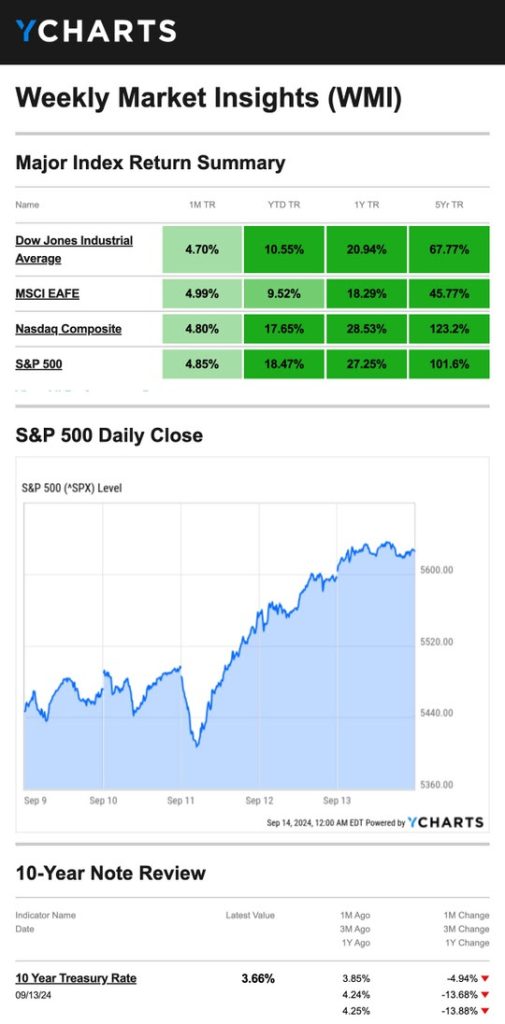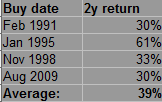By: Gerry Sparrow
Stocks rallied last week as investors received better-than-expected consumer and producer inflation data.
The Dow Jones Industrial Average rose 2.60 percent, while the Standard & Poor’s 500 Index gained 4.02 percent. The Nasdaq Composite led, picking up 5.95 percent as tech stocks rebounded. The MSCI EAFE Index, which tracks developed overseas stock markets, rose 1.01 percent.1,2
A Wednesday to Remember
Stocks bounced out of the gate at the start of the week as “risk on” investors made moves before the pending release of the twin inflation reports–the Consumer Price Index (CPI) and Producer Price Index (PPI). The three major averages added slightly more than 1 percent in Monday trading.3
On Wednesday, stocks initially dipped following the release of the CPI as traders appeared disappointed by the report. By midday, sentiment changed. The S&P 500, down as much as 1.6 percent in early trading, gained 1.1 percent by the closing bell. More inflation data out Thursday showed wholesale price increases were tempered, which helped stocks move higher through the balance of the week.4,5

Small Caps Shine
Small-cap stocks, as measured by the Russell 2000 Index, have pushed higher in recent weeks, which is a telling move for some Wall Street observers. The Russell 2000 has outperformed the S&P 500 by more than 4 percent during Q3 so far.6
One reason is that smaller stocks tend to respond when they anticipate interest rates will trend lower. Investors appear to be positioning themselves in small cap issues, expecting the Fed may adjust rates at its September meeting as it looks to guide the economy to a soft landing.7
This Week: Key Economic Data
Monday: Empire State Manufacturing Index.
Tuesday: FOMC meeting – Day 1. Retail Sales. Industrial Production. Fed Official Lorie Logan speaks.
Wednesday: FOMC meeting – Day 2. Housing Starts and Permits. FOMC Announcement. Fed Chair Press Conference.
Thursday: Existing Home Sales. Weekly Jobless Claims.
Friday: Fed Official Patrick Harker speaks.
Source: Investors Business Daily – Econoday economic calendar; September 13, 2024
The Econoday economic calendar lists upcoming U.S. economic data releases (including key economic indicators), Federal Reserve policy meetings, and speaking engagements of Federal Reserve officials. The content is developed from sources believed to be providing accurate information. The forecasts or forward-looking statements are based on assumptions and may not materialize. The forecasts also are subject to revision.
PHOTO CREDIT: https://www.shutterstock.com/g/Golden+Dayz
Via SHUTTERSTOCK
FOOTNOTES:
1. The Wall Street Journal, September 13, 2024
2. Investing.com, September 13, 2024
3. The Wall Street Journal, September 10, 2024
4. The Wall Street Journal, September 11, 2024
5. CNBC.com, September 12, 2024
6. The Wall Street Journal, September 13, 2024
7. MarketWatch.com, September 12, 2024
DISCLOSURES:
Investing involves risks, and investment decisions should be based on your own goals, time horizon, and tolerance for risk. The return and principal value of investments will fluctuate as market conditions change. When sold, investments may be worth more or less than their original cost.
The forecasts or forward-looking statements are based on assumptions, may not materialize, and are subject to revision without notice.
The market indexes discussed are unmanaged, and generally, considered representative of their respective markets. Index performance is not indicative of the past performance of a particular investment. Indexes do not incur management fees, costs, and expenses. Individuals cannot directly invest in unmanaged indexes. Past performance does not guarantee future results.
The Dow Jones Industrial Average is an unmanaged index that is generally considered representative of large-capitalization companies on the U.S. stock market. Nasdaq Composite is an index of the common stocks and similar securities listed on the NASDAQ stock market and is considered a broad indicator of the performance of technology and growth companies. The MSCI EAFE Index was created by Morgan Stanley Capital International (MSCI) and serves as a benchmark of the performance of major international equity markets, as represented by 21 major MSCI indexes from Europe, Australia, and Southeast Asia. The S&P 500 Composite Index is an unmanaged group of securities that are considered to be representative of the stock market in general.
U.S. Treasury Notes are guaranteed by the federal government as to the timely payment of principal and interest. However, if you sell a Treasury Note prior to maturity, it may be worth more or less than the original price paid. Fixed income investments are subject to various risks including changes in interest rates, credit quality, inflation risk, market valuations, prepayments, corporate events, tax ramifications and other factors.
International investments carry additional risks, which include differences in financial reporting standards, currency exchange rates, political risks unique to a specific country, foreign taxes and regulations, and the potential for illiquid markets. These factors may result in greater share price volatility.
Please consult your financial professional for additional information.
This content is developed from sources believed to be providing accurate information. The information in this material is not intended as tax or legal advice. Please consult legal or tax professionals for specific information regarding your individual situation. This material was developed and produced by FMG Suite to provide information on a topic that may be of interest. FMG is not affiliated with the named representative, financial professional, Registered Investment Advisor, Broker-Dealer, nor state- or SEC-registered investment advisory firm. The opinions expressed and material provided are for general information, and they should not be considered a solicitation for the purchase or sale of any security.




